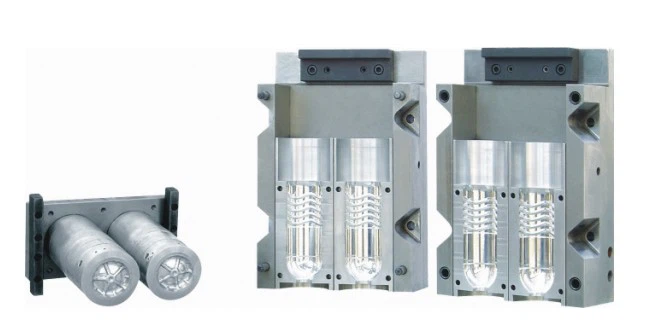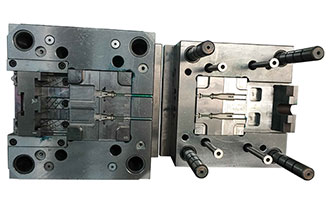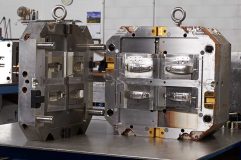Injection molding is one of the most efficient and widely used manufacturing processes for producing custom parts. Whether you’re a startup looking to prototype a new product or an established company aiming for high-volume production, understanding the cost factors involved is crucial. But how much does injection molding cost for custom parts? Let’s break it down by examining the key elements that influence pricing.
1. Mold Tooling: The Largest Upfront Investment
The most significant cost in injection molding is the creation of the mold tooling, also known as the mold or die. This is a custom-made piece of equipment designed specifically for your part.
Factors Affecting Mold Tooling Cost:
- Material of the Mold:
- Aluminum molds: Lower cost, suitable for prototyping or short production runs.
- Steel molds: Higher cost, durable, and ideal for long production runs.
- Complexity of the Design:
- Simple designs with fewer cavities are less expensive.
- Complex designs with multiple cavities and intricate geometries increase costs.
- Size of the Mold: Larger molds require more material and machining, leading to higher costs.
Typical Range: $3,000 to $100,000, depending on the factors above.

2. Material Costs: The Raw Inputs
The choice of plastic resin plays a significant role in determining the overall cost of injection molding.
Factors to Consider:
- Type of Resin:
- Common materials like polypropylene (PP) and polyethylene (PE) are cost-effective.
- High-performance materials like polycarbonate (PC) or PEEK are more expensive but offer superior properties such as heat resistance or strength.
- Material Volume:
- The weight of your part and the number of parts produced determine the amount of resin required.
- Color and Additives:
- Custom colors, UV stabilizers, and flame retardants increase material costs.
Typical Cost: $1 to $10 per pound, depending on the resin type.
3. Production Costs: Per-Part Pricing
Once the mold is made, production costs are calculated on a per-part basis. These costs cover machine time, labor, and overhead.
Key Factors:
- Cycle Time:
- Faster cycle times reduce machine usage and labor costs.
- Part complexity and size influence the cycle time.
- Quantity of Parts:
- Higher production volumes reduce the per-part cost due to economies of scale.
- Short runs tend to have a higher per-part cost.
- Machine Size and Type:
- Larger machines for bigger parts use more energy, increasing costs.
- Specialized machines (e.g., for multi-shot molding) may also cost more.
Typical Cost: $0.10 to $5 per part, depending on the factors above.
4. Secondary Processes: Adding Value
Depending on the requirements, secondary processes might be necessary to achieve the desired final product.
Common Secondary Processes:
- Post-Mold Machining: For precise features that can’t be molded.
- Surface Finishing: Polishing, painting, or texturing for aesthetic or functional purposes.
- Assembly: If multiple components need to be assembled post-molding.
Additional Costs: Vary widely, typically adding $0.50 to $10 per part.
5. Quality Assurance and Testing
Ensuring that parts meet quality standards is a critical aspect of injection molding. This includes both in-process inspections and final testing.
Common Testing Services:
- Dimensional inspection.
- Material property testing (e.g., tensile strength, impact resistance).
- Functional testing based on end-use requirements.
Typical Cost: Adds 5-10% to the overall project cost, depending on the testing complexity.

6. Shipping and Logistics
For custom parts, shipping can also be a factor in the total cost. Depending on the production location and your delivery requirements, shipping costs can vary.
Factors:
- Size and weight of the parts.
- Distance and shipping method.
- Import/export duties if manufacturing overseas.
Example Cost Breakdown
Let’s consider a hypothetical example to illustrate the costs:
- Part Type: Medium-sized plastic enclosure for electronic devices.
- Mold Cost: $15,000 (steel mold, moderate complexity).
- Material Cost: $3 per pound for ABS plastic.
- Production Volume: 10,000 units.
- Per-Part Production Cost: $0.75.
- Total Cost:
- Mold: $15,000
- Material: $2,000 (approx.)
- Production: $7,500
- Secondary Processes & Testing: $2,000
Total Cost: $26,500, or $2.65 per unit when including mold amortization.
Conclusion: Understanding Injection Molding Costs
The cost of injection molding custom parts depends on various factors, including mold tooling, material selection, production volume, and secondary processes. While the upfront investment in mold tooling can be significant, the per-part cost drops considerably with higher volumes, making injection molding an efficient solution for large-scale production.
To get an accurate quote for your project, it’s crucial to consult with experienced manufacturers who can help optimize your design and material choices to balance quality and cost.
By understanding the cost structure, you can make informed decisions that align with your production goals and budget.

